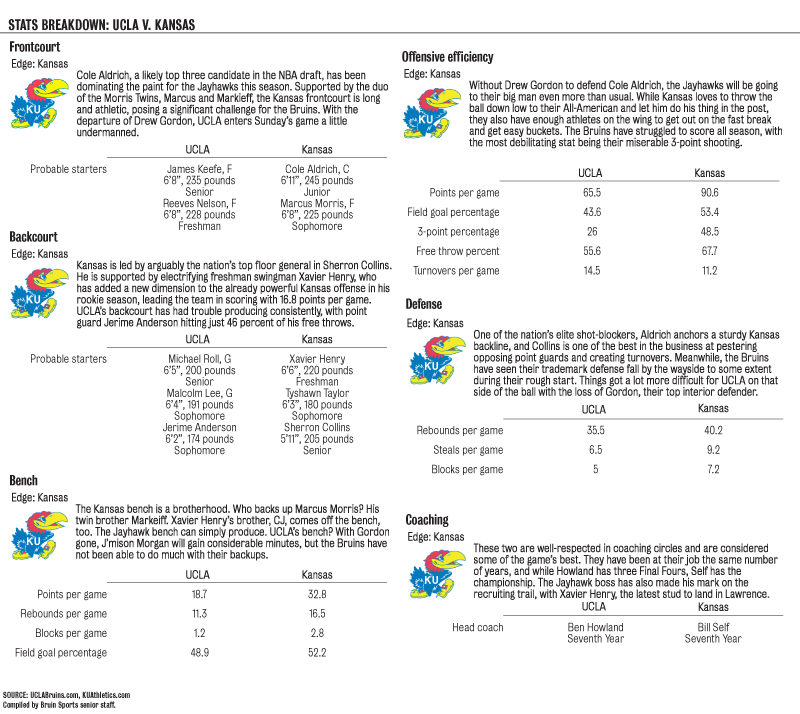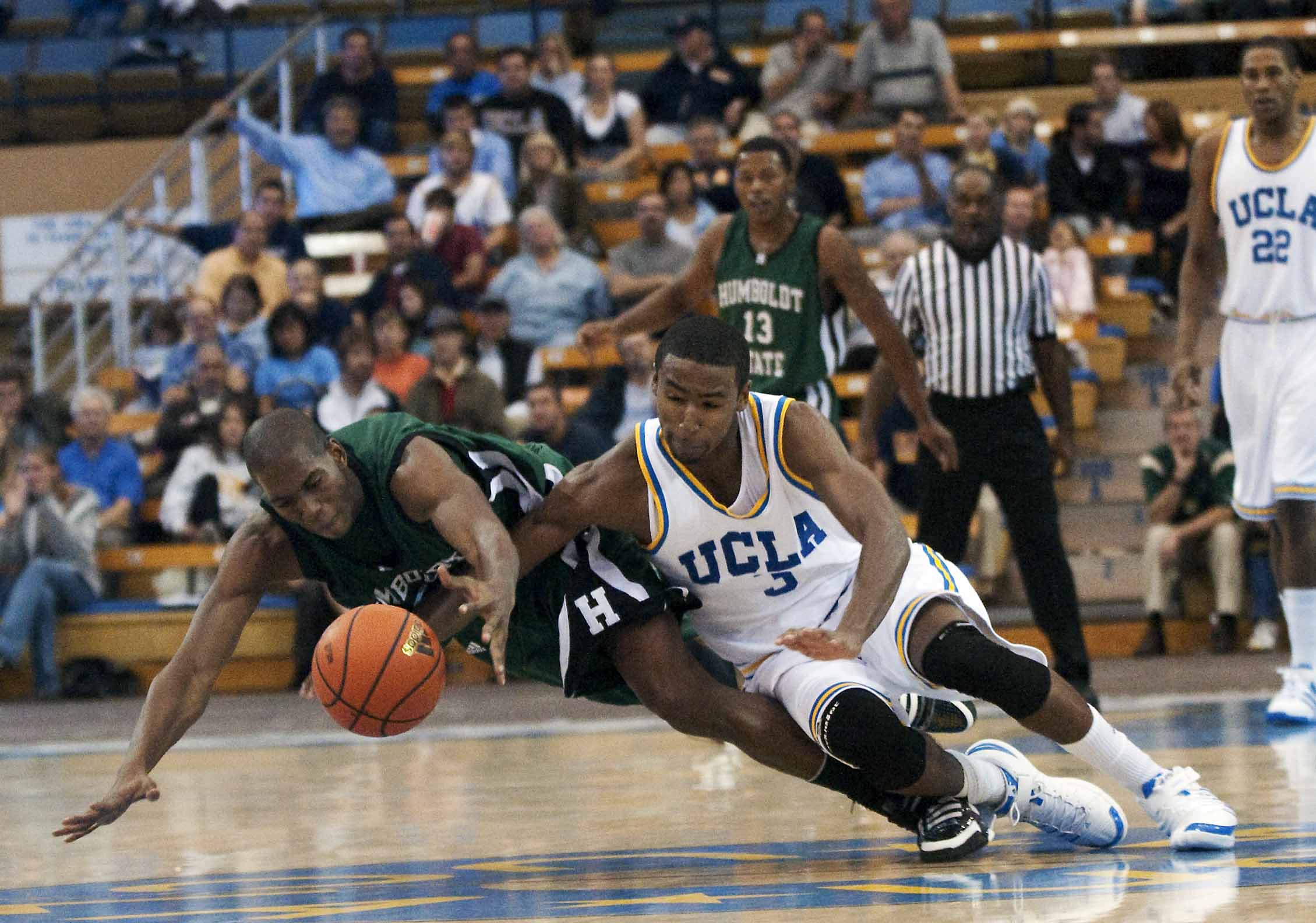
Ben Howland has built his reputation on tough man-to-man defense. Historically, even when the shots weren’t falling, the UCLA basketball coach was able to rely on a stop or two at the other end to carry his team through.
But there is no doubt this is a different Bruin team than in years past, and a 2-4 record has forced Howland to pull out something unseen in Westwood for years: the zone defense.
“Our biggest thing we need right now is to continue to develop the identity that this program has had, which is we’re a very good defensive team that’s going to really claw and scratch to … make it difficult for our opponent to score,” Howland said.
“And it may potentially mean that we look at some zone.”
UCLA has been consistently getting beat from the perimeter this season, where quicker guards have been allowed to gain a step on Bruin resistance and turn that advantage into points. This has led Howland to consider the change.
“Part of it is we’re playing those guards so many minutes,” Howland said. “And part of it is, athletically, we’re having a hard time staying in front of the ball.”
The defense might not yet be totally broken, but redshirt junior guard Mustafa Abdul-Hamid believes it could definitely use some fixing.
“It needs to improve,” he said.
No one has stepped up to be the squad’s go-to backcourt stopper in the manner of former Bruin guards Jrue Holiday, Russell Westbrook or Arron Afflalo, but the problems seem to be bigger than just one man. Howland can point to several.
“(Senior guard Michael Roll) has been a decent defender throughout his career, but yet he still sometimes gives an edge up to his opponent in terms of his lateral quickness,” he said.
Howland added that being forced to move 6-foot-9-inch senior Nikola Dragovic to the small forward position has not helped.
“He just doesn’t match up well, and you see it in all the films,” he said.
The biggest surprise in this category, however, might be Howland’s most fleet-footed guard.
“Even our quickest player, Malcolm Lee ““ who should be the best at staying in front of the ball ““ is broken down at times from that standpoint because he’s reaching for it,” he said.
Teams with more porous defenses are often called for more fouls because they are caught trying to compensate for getting behind their opponent. UCLA currently commits 19.2 fouls a game, an average that puts the other team in the double bonus nearly every half.
Properly implementing a zone defense would mean relying less on the individual matchups and more on the team’s communication and awareness.
But it would also mean starting a new project in the middle of the season for a team whose practice time has been sucked away by injuries, suspensions and one of the toughest non-conference schedules in the country. That’s not to mention the fact that many of these Bruins have never had to play the zone at a competitive level.
“I’ve never really played zone in my career, but if that’s what is going to make us better and get us wins, then that’s what we’re going to do,” Dragovic said.
Neither Roll nor fellow senior James Keefe have played zone in their combined nine years in the program, and both claim not to have played it in high school either.
Howland said he would use the week of practice before facing top-ranked Kansas to teach some zone concepts to his players.
“You have to understand that you have to work really hard when you’re in a zone,” he said. “It’s not a relaxing time. Defense ““ whether it’s zone or man ““ is meant to be played with a lot of intensity.”
Despite his reluctance to change defensive strategies in the past, Howland does admit this team might have the physical attributes more suited for zone play.
“One thing we can do at times is have length and size in there, which makes it more difficult to score against a zone,” he said.
In the midst of a losing streak, the Bruins are just searching for something that clicks, and Howland thinks a new defensive style might help turn things around.
Roll, whose senior season has fast become the most trying of his collegiate career, is more than willing to buy in.
“If it helps us play,” he said, “then I’m all for it.”
